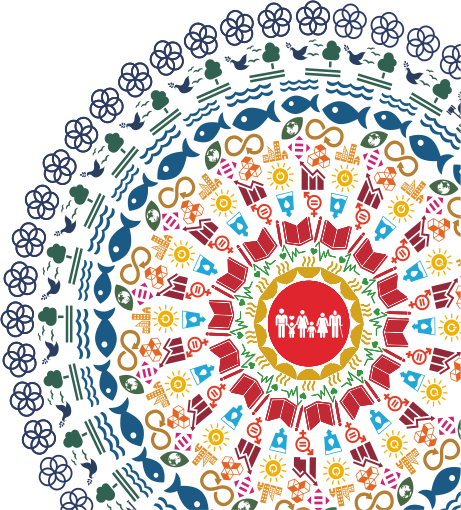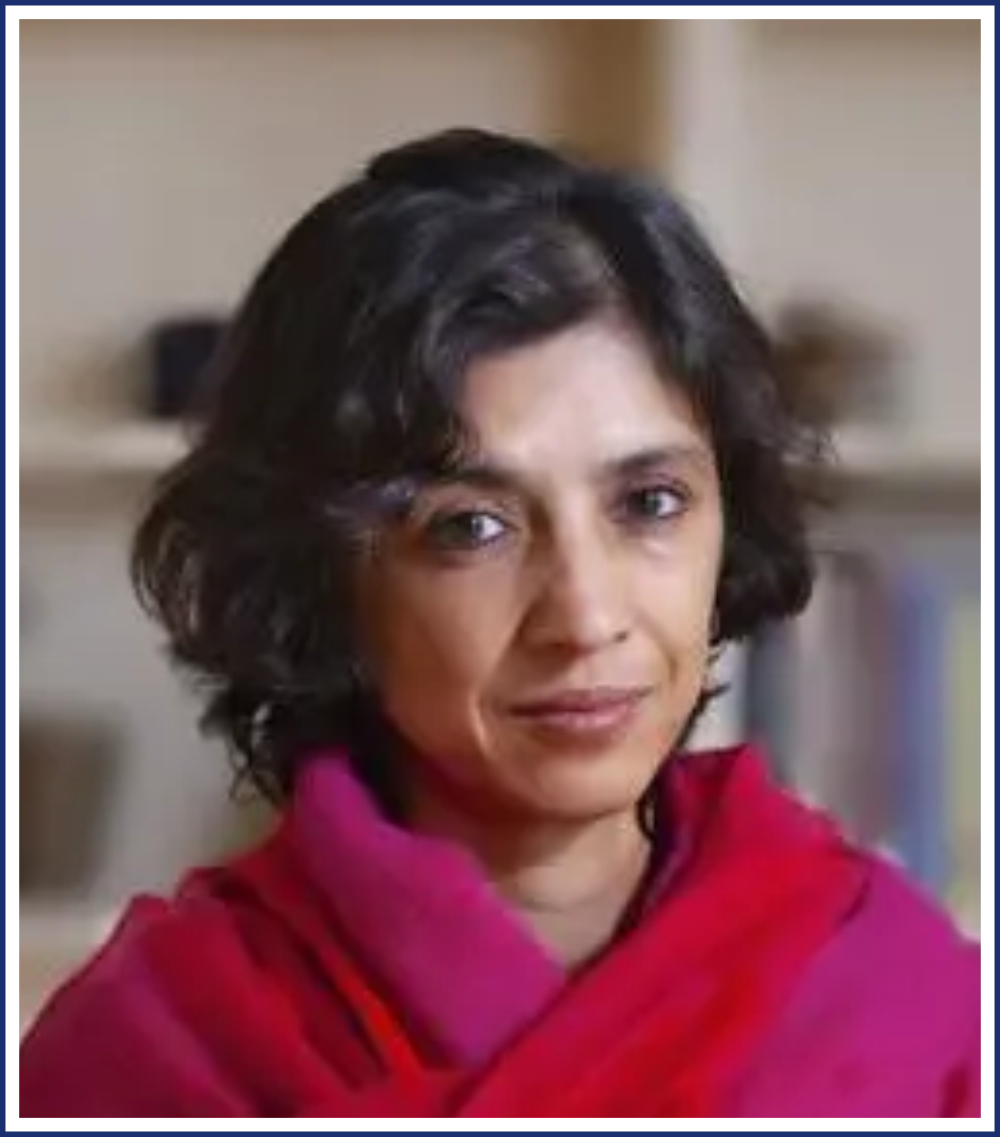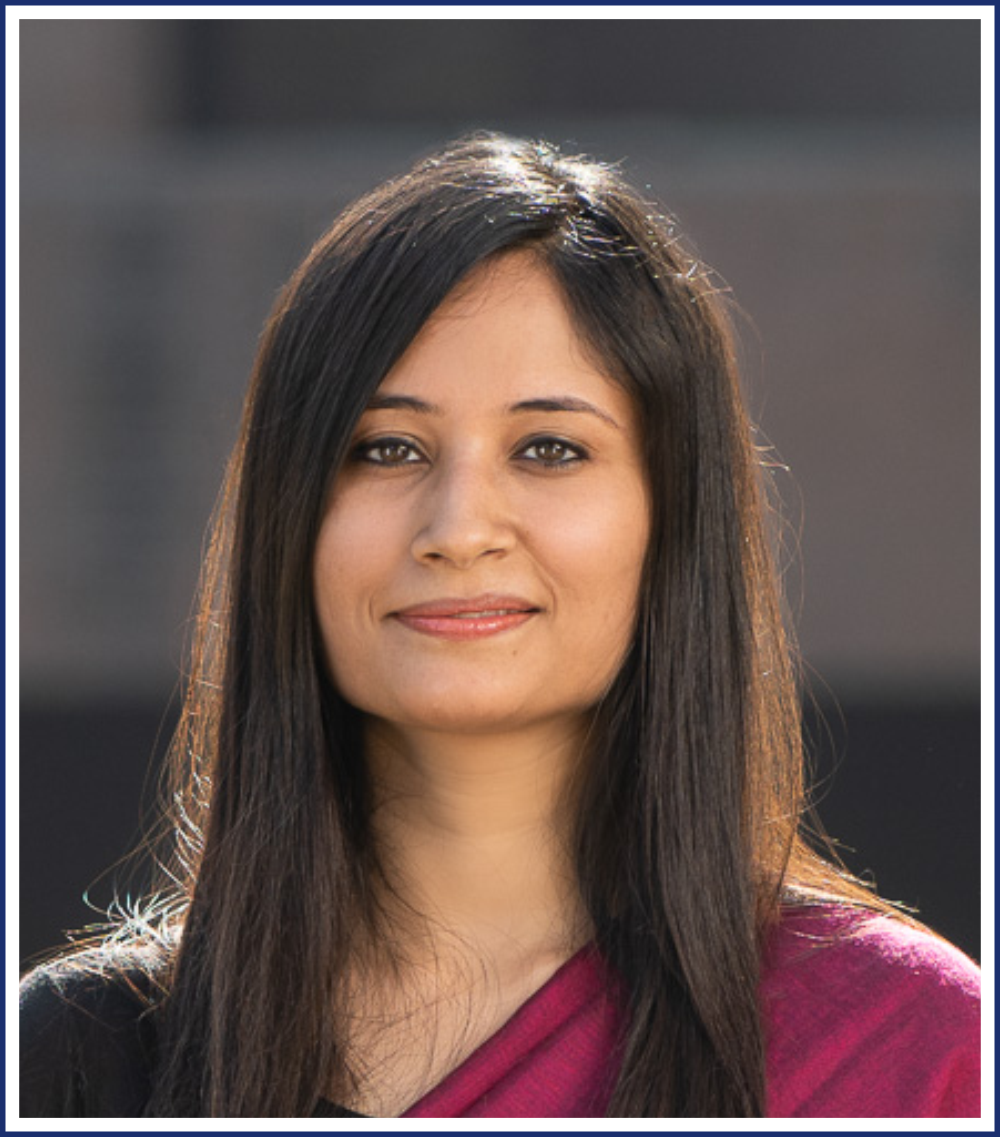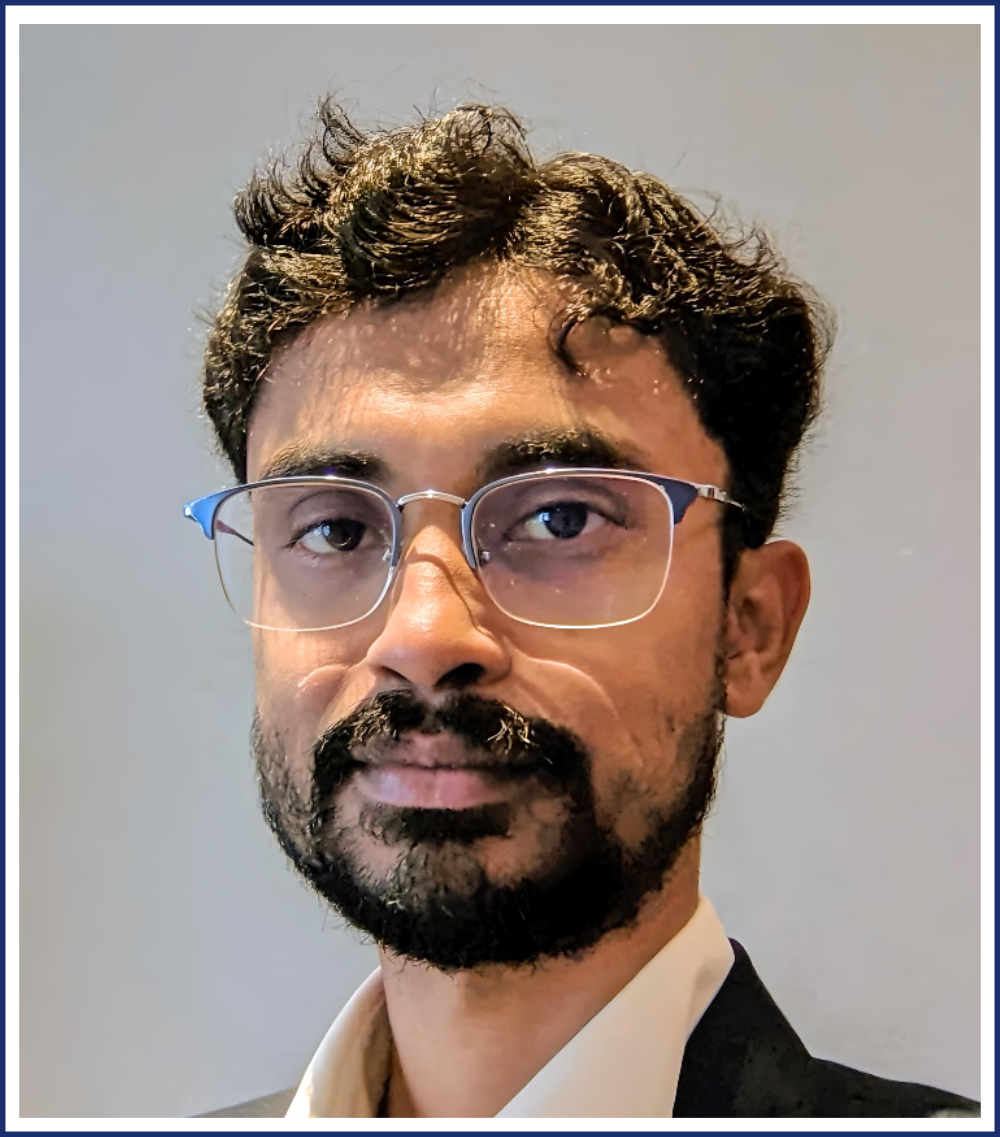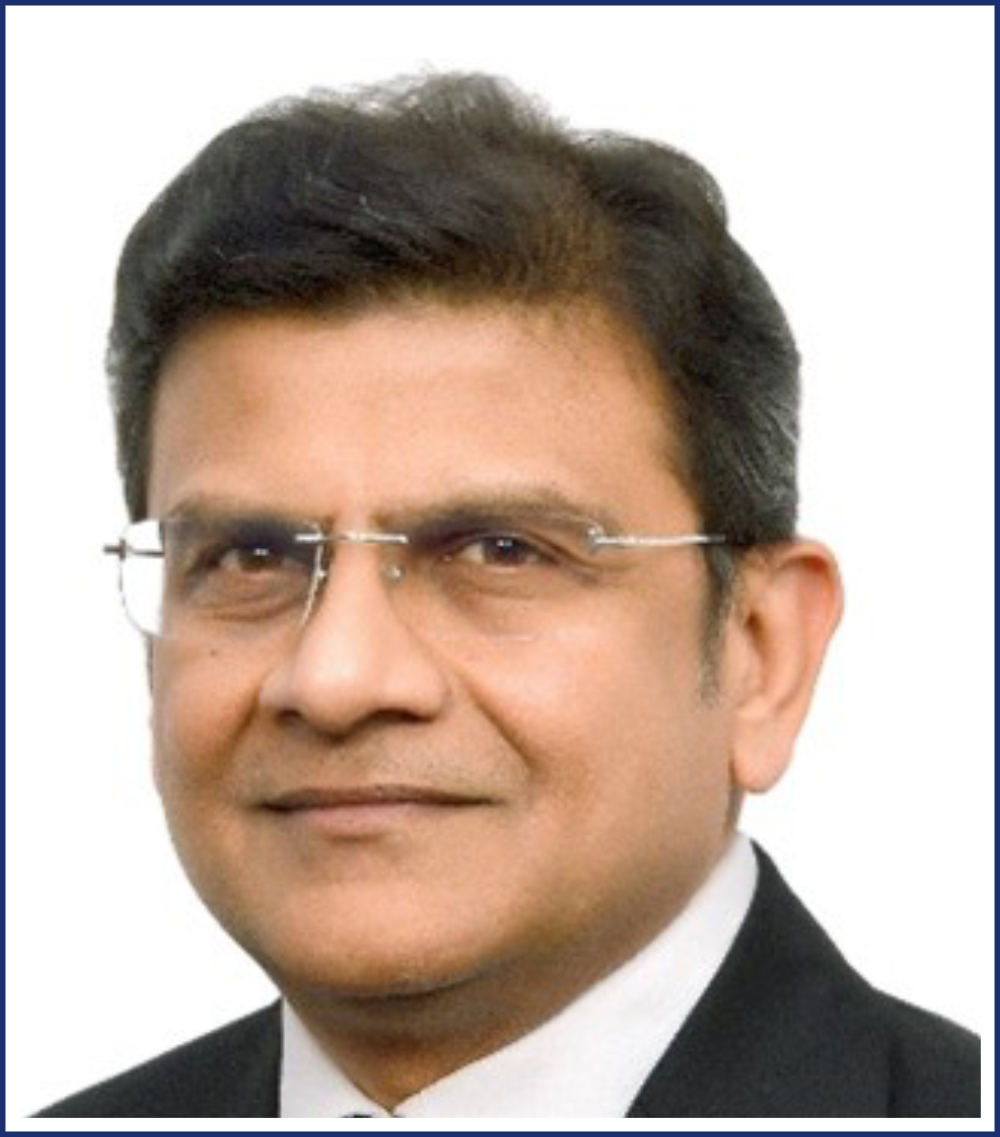SPEAKERS
Henry J. Heinz II Professor of Economics and Director of the Economic Growth Center at Yale University
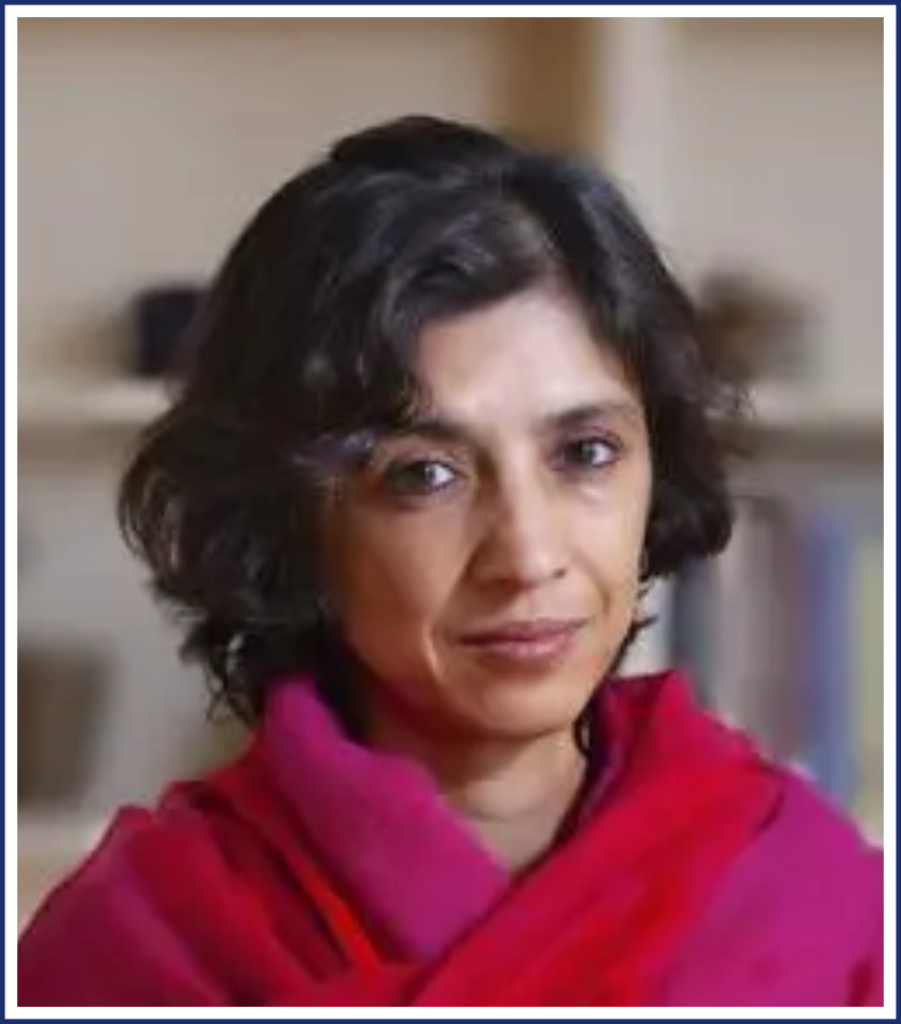
Keynote Speaker & Panelist
Prof. Rohini Pande
Rohini Pande is the Henry J. Heinz II Professor of Economics and Director of the Economic Growth Center at Yale University. She is also the faculty director of Inclusion Economics at Yale. She is an elected member of the American Academy of Arts and Sciences, an Econometric Society fellow, and a former co-editor of American Economic Review: Insights. Pande received the 2018 Carolyn Bell Shaw Award from the American Economic Association for promoting the success of women in the economics profession and the 2022 Infosys Prize in Social Sciences. Formerly, Pande was the Rafik Harriri Professor of International Political Economy at Harvard Kennedy School.
Pande’s research, which has influenced policy in South Asia and globally, focuses on how institutions shape power relationships and patterns of economic, political, and environmental advantage in low-income countries. She is interested in the role of public policy in providing the poor and disadvantaged political and economic power, as well as how notions of economic justice and human rights can legitimize and enable such change. With Inclusion Economics India Center, she is working with Indian state governments on gender-inclusive rural development and digital policies and with Inclusion Economics Nepal Center she is evaluating policies to strengthen quality of policy-making by elected local governments.
Pande received a PhD in economics from the London School of Economics, a BA/MA in Philosophy, Politics, and Economics from Oxford University, and a BA in Economics from Delhi University.
Faculty member and the current chairperson in the Information Systems area at IIM Ahmedabad
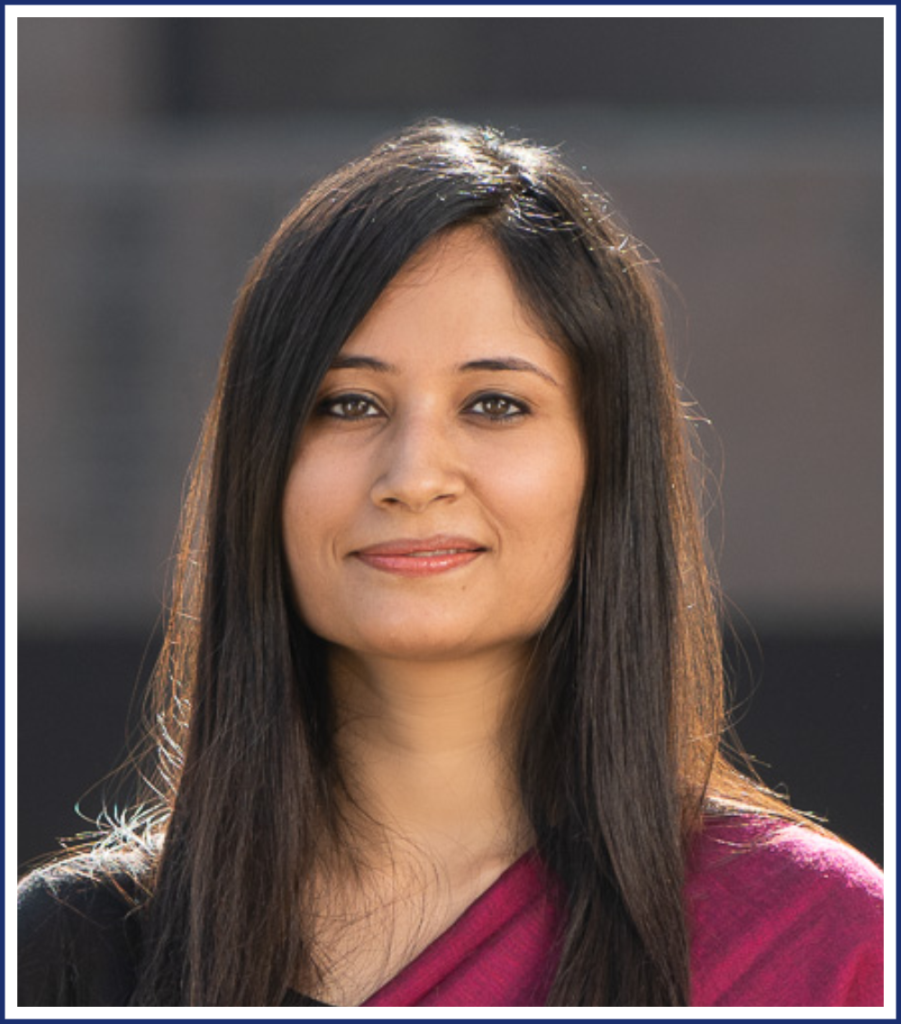
Featured Speaker
Prof. Adrija Majumdar
Adrija Majumdar is a faculty member and the current chairperson in the Information Systems area at IIM Ahmedabad. Her research interests include social media, online communities, crowdfunding, and text mining. Her research articles have been published in international journals such as Information & Management, International Journal of Information Management, Information Systems Frontiers Transportation Research Part E: Logistics and Transportation Review, Technology Forecasting and Social Change, Communications of AIS, International Journal of Production Economics, etc. She completed her PhD from IIM Calcutta in Management Information Systems.
Dean of Faculty and Research, Associate Professor, and Young Faculty Research Chair at IIM Udaipur

Featured Speaker
Prof. Anirban Adhikary
Prof. Anirban Adhikary is the Dean of Faculty and Research, Associate Professor, and Young Faculty Research Chair at IIM Udaipur. His research primarily focuses on sustainability issues in supply chains, exploring innovative solutions to address environmental and social challenges.

Panelist
Shri Alpan Raval
Alpan Raval is the Chief AI/ML Scientist at the Wadhwani Institute for Artificial Intelligence, a non-profit devoted to developing and deploying AI for social impact across the global South. The institute currently build AI solutions for public health, agriculture and education. Alpan has been working in the applied AI space for over two decades, initially as a professor at the Claremont Colleges in California, and later at D E Shaw Research, Amazon, and LinkedIn. He is an author of a book on network biology, Introduction to Biological Networks.
Alpan holds a PhD in theoretical physics from the University of Maryland, USA and an undergraduate degree from the Indian Institute of Technology, Kanpur.
President – Sustainability and Strategic Projects Kotak Mahindra Bank Limited
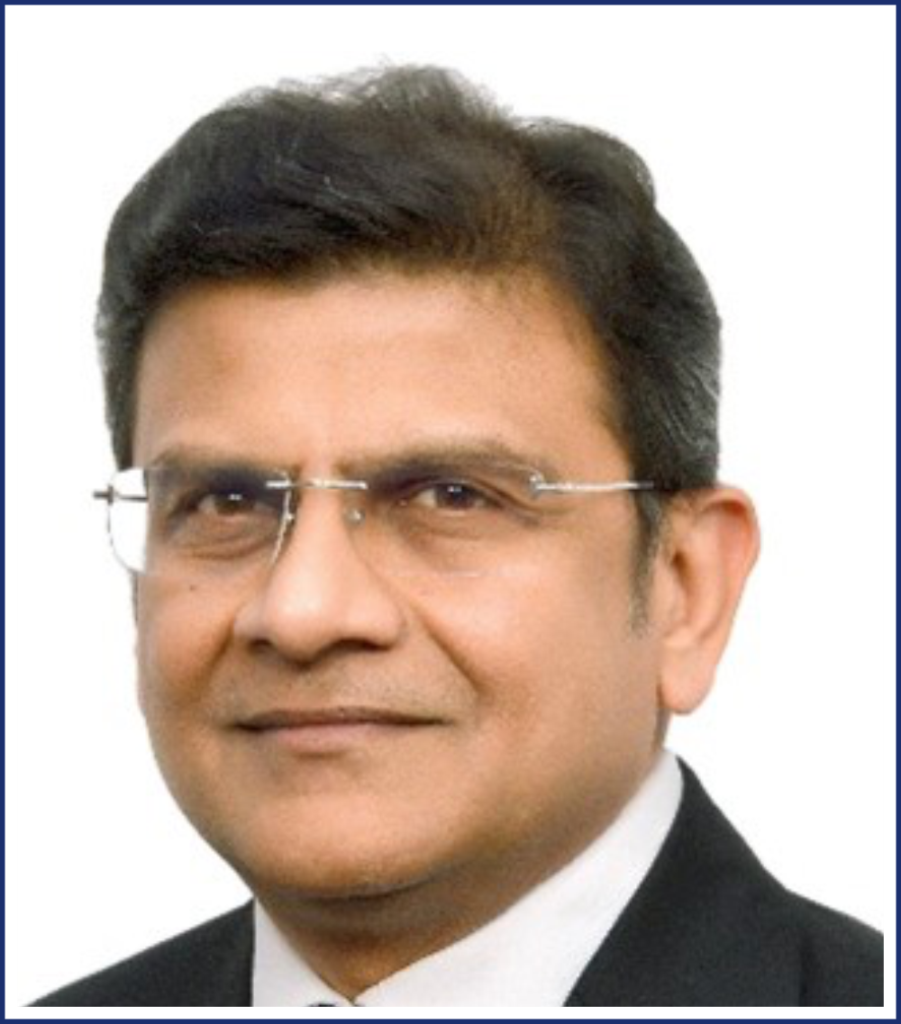
Panelist
Shri Chetan Savla
Chetan Savla is President – Sustainability and Strategic Projects at Kotak Mahindra Bank.
Within his career with Kotak group of over 30 years, Chetan has led the Sustainability practice for the Group since 2021.
Prior to that, Chetan was Head of Group Strategy at Kotak Mahindra Bank for 4 years and he worked for 18 years as an investment banker with Kotak Mahindra Capital Company. As a part of his work in investment banking, Chetan led over 80 capital market transactions to raise over USD 18 billion for corporate India, as well as advised Indian and global companies in their M&A transactions.
Chetan is a 1991 MBA from the Indian Institute of Management Ahmedabad.

Panelist
Shri P. S. Narayan
Mr. P. S. Narayan has been instrumental in the creation of Wipro’s sustainability initiative and has stewarded it since its inception in early 2008. Wipro’s sustainability charter is built on the core principle that business and social purpose must reinforce each other in addressing several key challenges around ecology and education.
In addition, Mr. Narayan is Visiting Faculty at the Azim Premji University where he teaches in the MA (Development) program. He is also Visiting Faculty at Xavier School of Sustainability, Xavier University, Bhubaneswar.
Mr. Narayan conducts learning sessions regularly on Sustainability at the Indian Institute of Management, Bangalore and Indore. He is involved in sustainability advocacy as a member of several industry forums.
He is currently the Chairman of the Bangalore chapter of CII-Godrej Green Business Center. Prior to his current role, Mr. Narayan was the Global Head of Information Systems for Wipro’s IT business, when he was chosen as one of CIO’s global 25 Ones to Watch. A graduate in Electrical Engineering with a post-graduation in Management, Narayan has more than 27 years of cross-disciplinary experience in Business Development, Enterprise Systems and Corporate Sustainability.
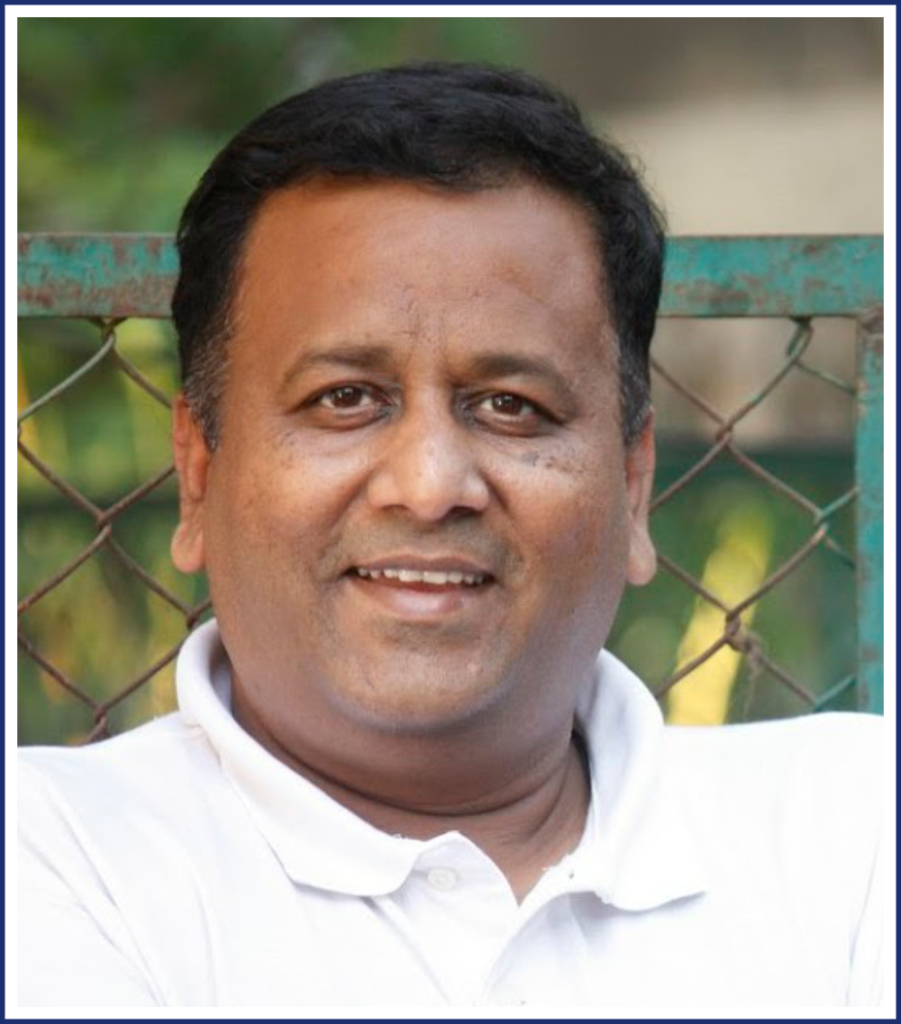
Panelist
Mr. Atul Mittal
Atul is an accomplished, creative and entrepreneurial senior executive with
twenty-four years’ professional experience. Atul has demonstrated proven
success in community mobilization, carbon financing, brand development and
establishing renewable energy products like solar-cookstoves-water purifiers and
now biogas. Worked with big brands like British Petroleum, Philips Electronics,
Max New York Life, Wockhardt and then social start-ups like d.light solar and
MicroEnergy Credits.
Currently Director, Commercial with Sistema.bio, which is a social enterprise
which provides smallholder dairy farmers with biogas technology, service and
financing. It allows smallholder farmers to increase agricultural productivity and
net income, while improving the environmental sustainability of their farms. Since
Mar 2019, Atul is trying to establish biogas for smallholder farmers in India, South
Asia and East African countries by working through partnerships. He is actively
working with private dairies, foundations, rural entrepreneurship organisations
and government to make biogas – not only for cooking, but also for biofertilizer,
electricity generation and livelihood operations making every farmer of India self-
reliant.
Atul has outstanding sector expertise in social marketing, social franchising, small
enterprise development, integrated development management, with particularly
strong track record in renewable energy products, & livelihood programs which
he has successfully run in India, South Asia and East African countries.

Panelist
Mr. Syed Farhan
Syed A A Farhan is a Associate Director at PwC India with around 11 years of experience. His work focuses on, carbon markets and climate finance with clients from both the Public and Private Sector across sectors including forestry. He has extensive experience in carbon market advisory including experience in carbon markets advisory, both Compliance market (CDM) and Voluntary Markets (VCM). He has led projects within and outside India focusing on research and assessments as well as capacity building. He was one of the lead authors for a detailed study of the availability and future projection of Carbon Market Mechanisms for MoEFCC, India. He has also supported Article 6 negotiations for COP26 at Glasgow and is currently a key member for the development of the Indian Carbon Market.
CONFERENCE TOPICS
This is the research paper track for the India Responsible Capital Conference (IRCC 2024), co-located with the India Management Research Conference (IMRC 2024). We invite participants to submit research manuscripts in the areas of corporate governance, corporate sustainability, and business ethics for presentation at the IRCC 2024.
IRCC 2024 aims to encourage research papers in several critical areas: integrating sustainability into business strategies and practices; exploring green and sustainable finance; sustainable marketing and branding; sustainable supply-chains; business model innovations addressing climate change; examining corporate governance and ethics; carbon markets and climate policy instruments; navigating regulatory frameworks and responsible corporate behavior; and assessing stakeholder engagement and sustainable value creation. The track on Corporate Governance, Corporate Sustainability, & Responsible Capital invites submissions categorized into the following sub-tracks:
1: Integrating Sustainability into Business Strategies and Practice: This theme focuses on approaches, and challenges for integrating sustainability principles into business strategies and models. Illustrative research areas include:
| Informativeness of Sustainability Metrics And Reporting Frameworks | Firm Performance Metrics and Sustainability |
Sustainable Product and Process Innovations |
| Sustainable Marketing and Branding. | Non-Market Strategies for Engaging with Institutional Opportunities and Challenges of Sustainable Transition Goals. | Sustainable Supply Chain Models and Strategies |
2: Green Finance, Carbon Markets and Sustainable Financing: This theme explores the innovation and impact of financing solutions that aid in investment flows to projects with environmental benefits and aligned with sustainable development. Illustrative research areas include:
| Green Finance and its Role in Supporting Sustainable Development | Climate Risk Assessment and Management in the Financial Sector | Open Market Mechanisms to Drive Financing for Sustainability Transition |
| Carbon Markets: Role in Facilitating Emissions Reduction | Green Bonds and Sustainable Debt Instruments for Financing Climate-Friendly Projects | Financing Green Projects Through Multilateral and Regional Institutions |
3: Climate Change and Systemic Risk: This theme focuses on the intersection of climate change and risks to the macro economic and social system. It explores the implications of climate change for business risk, adaptation and risk mitigation strategies, macroprudential monetary and fiscal policy, and the integration of climate considerations into system-level analysis and modeling. Illustrative research areas include:
| Integrating Systematic Risks and Sustainability in Business Risk Management Strategies. | Macroprudential Policy Responses to Climate Change Risks | Incorporating Climate Factors into Modelling of Socio-Economic Systems |
| Climate Policy Frameworks and Their Impact on Financial Markets and Financial Institutions | Climate Adaptation, and Mitigation Strategies for Businesses. |
4: Corporate Governance, Ethics and Firm Performance: This theme explores the relationship between corporate governance, adherence to ethical practices and financial performance, shedding light on the impact of effective governance on organizational success. Illustrative research areas include:
| The Influence of Board Structure and Composition on Firm Performance Outcomes | Shareholder Activism and its Effects on Corporate Governance and Financial Performance | Board Diversity and its Impact on Decision-Making and Firm Performance Outcomes |
| Executive Compensation and its Implications for Firm Performance | The Role of Audit Quality and Financial Reporting in Enhancing Corporate Governance |
5: Stakeholder Engagement and Sustainable Value Creation: This theme explores the role of stakeholder engagement in sustainable value creation, highlighting the importance of collaboration and inclusivity in achieving long-term business sustainability. Illustrative research areas include:
| Engaging Employees in Sustainability Initiatives: From Awareness to Action | Investor Engagement and the Integration of ESG Considerations | Community Involvement and its Impact on Sustainable Value Creation |
| Building Sustainable Supply Chains through Stakeholder Collaboration | Social Impact Measurement and Evaluation in Stakeholder Engagement |
Submission Requirements: Extended Abstract (1000 words) & Complete Paper (Optional). Please note that complete papers are mandatory to be considered for an award.
Authors of accepted abstracts can submit full papers or case studies by November 25, 2024.
Submission Link: https://easychair.org/conferences/?conf=imrc2024
Award: The conference will present awards for the Best Paper, Best Case Study, and Best Doctoral Research (with the first author being a doctoral student), each carrying a prize of ₹ 25,000, to qualifying entries.
CONFERENCE SCHEDULE
For download schedule click here
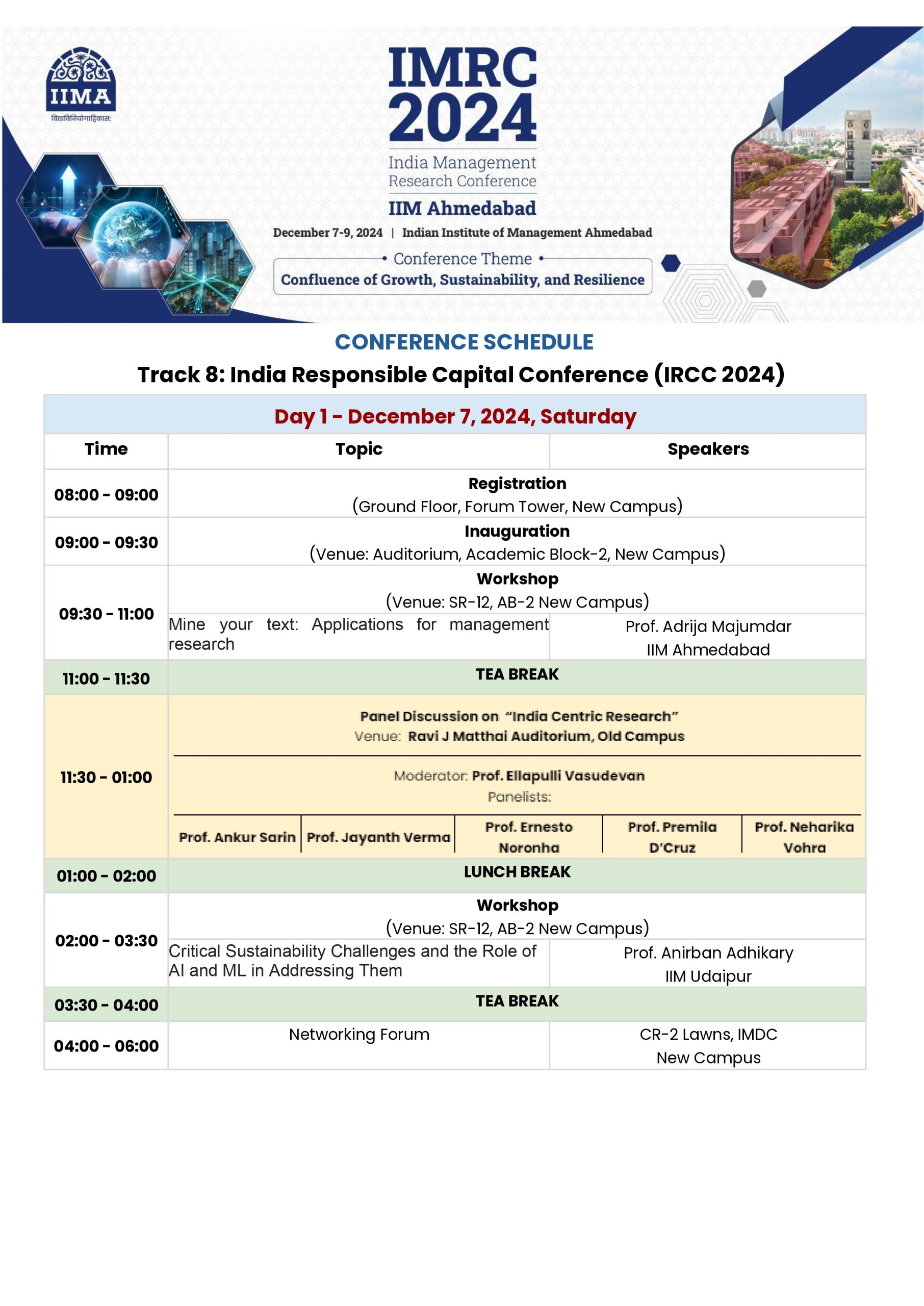
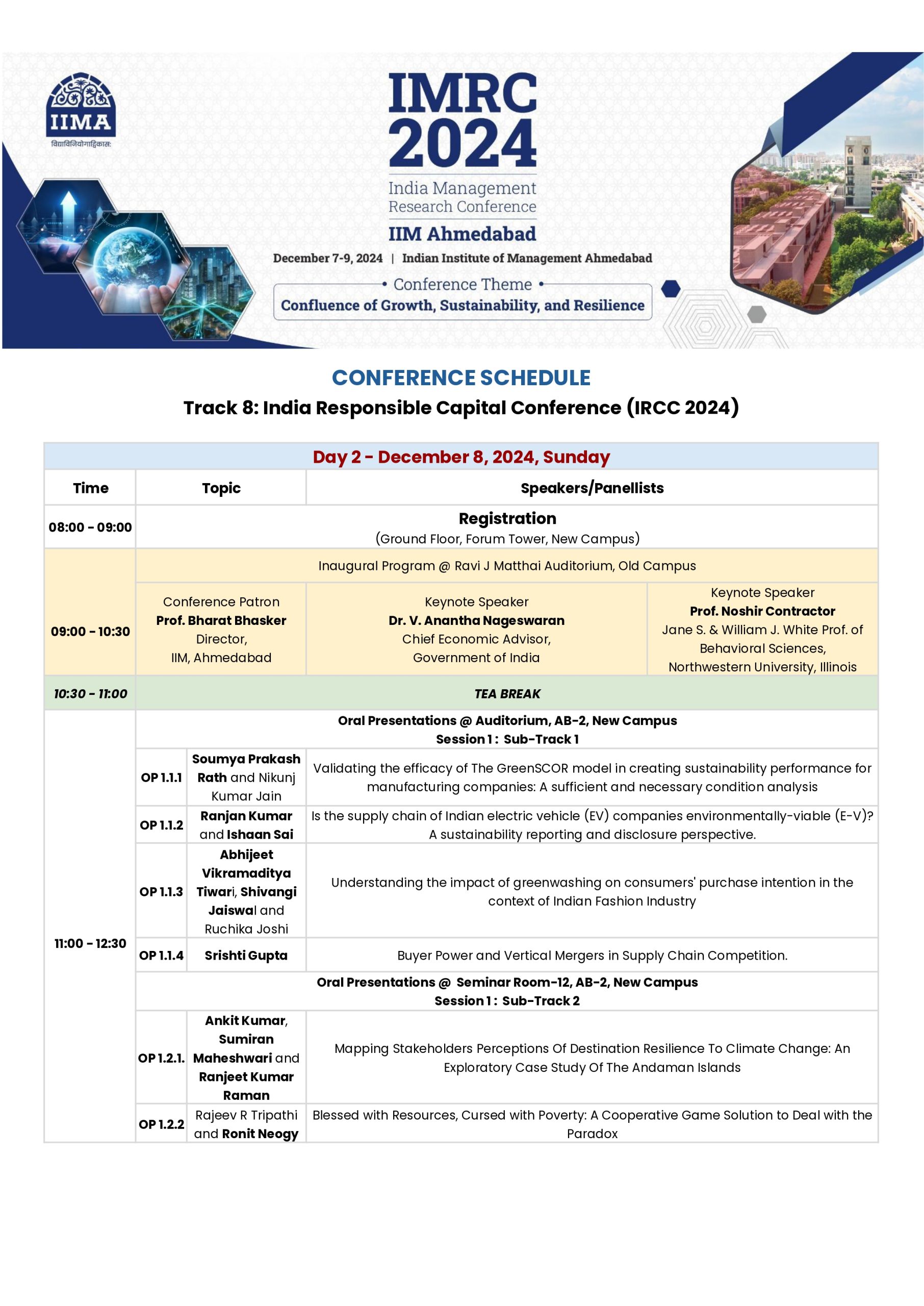
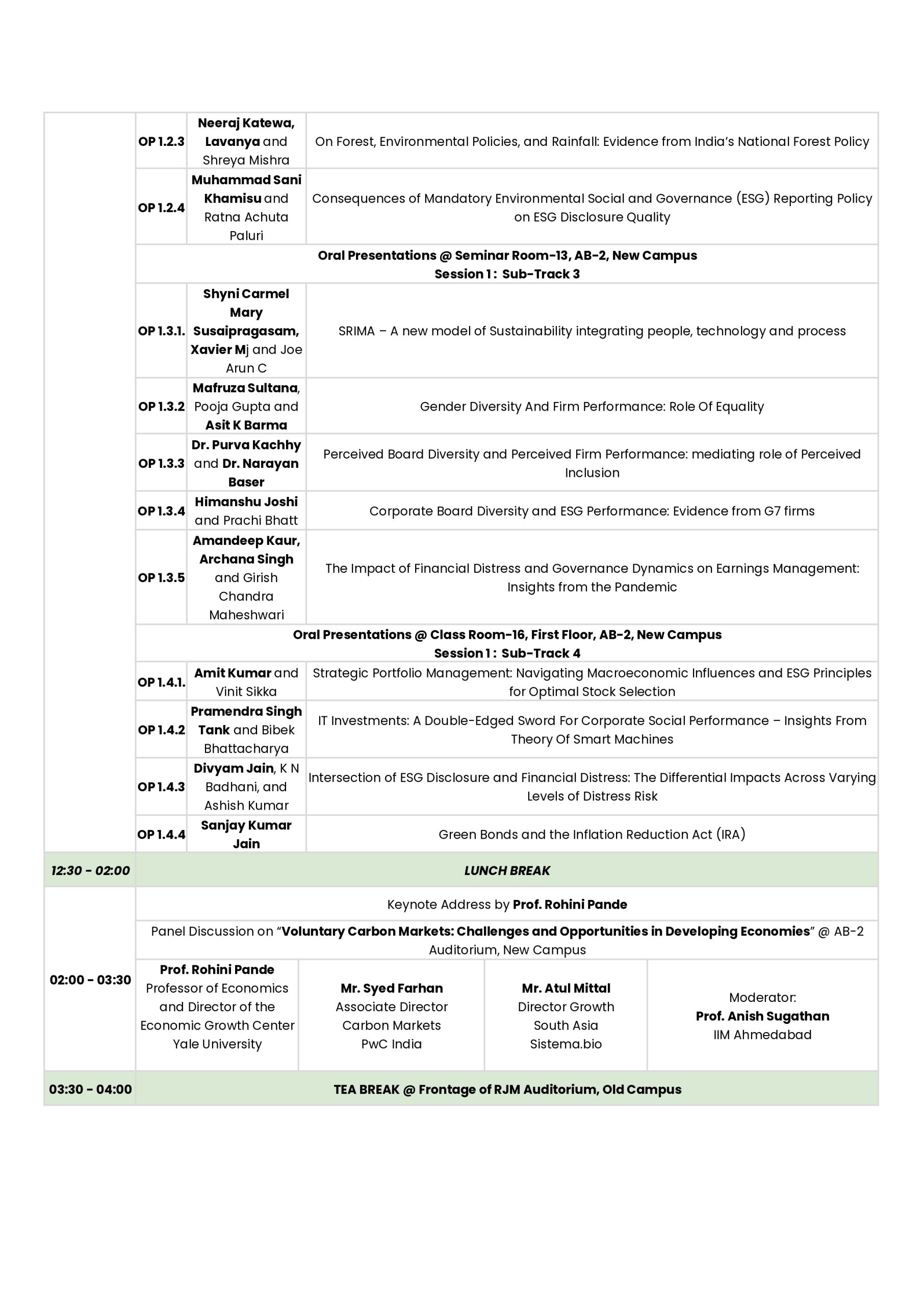
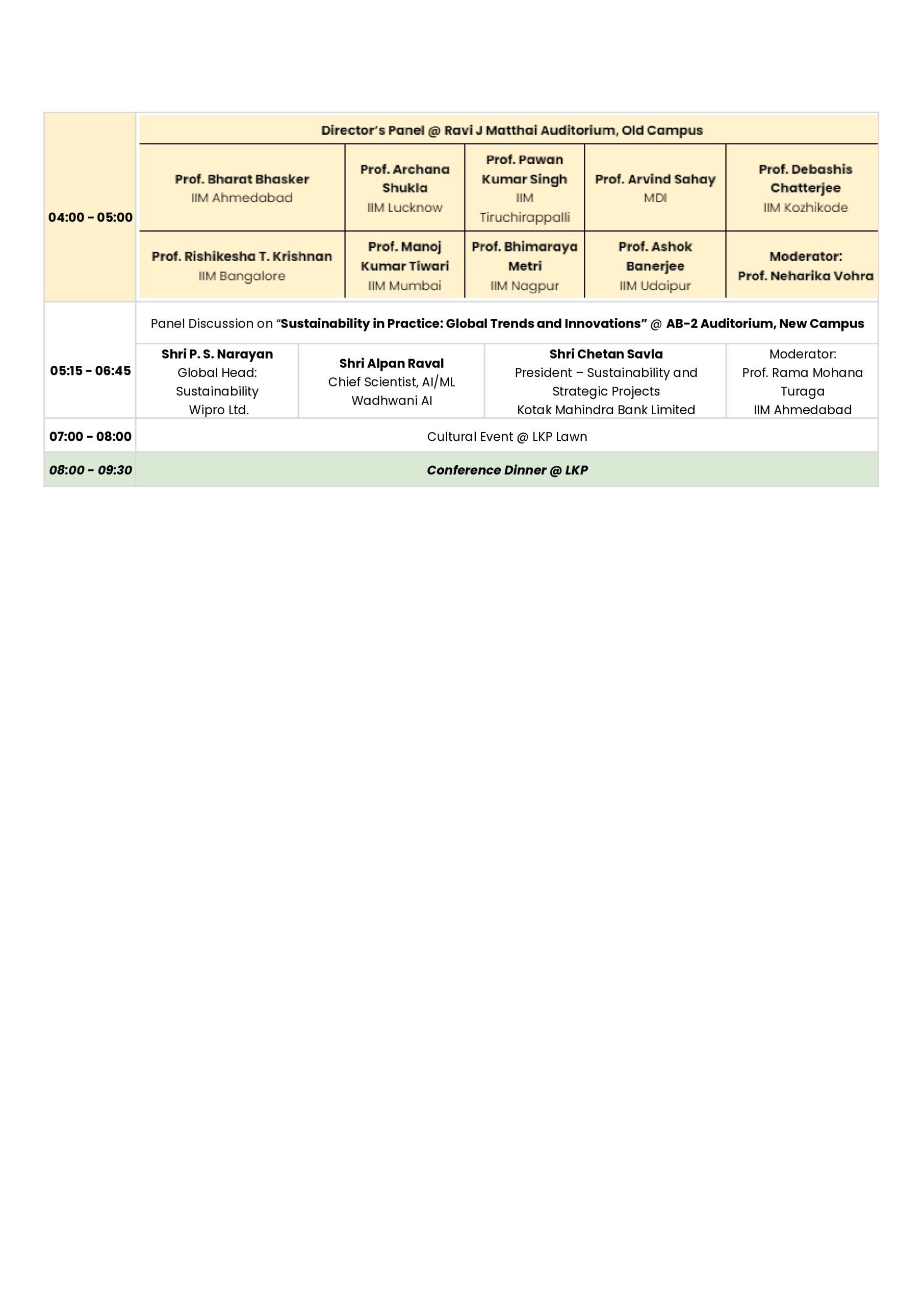
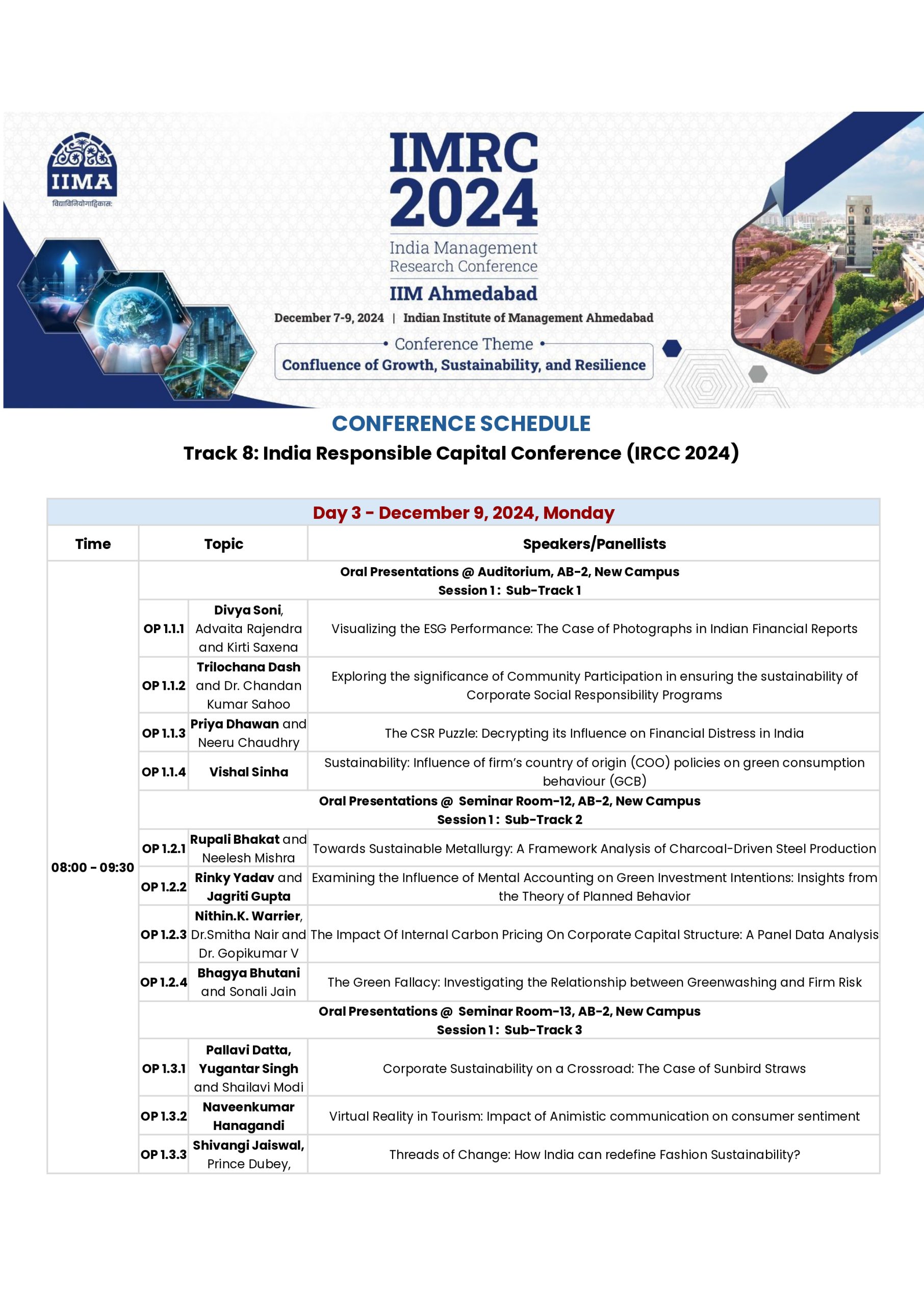
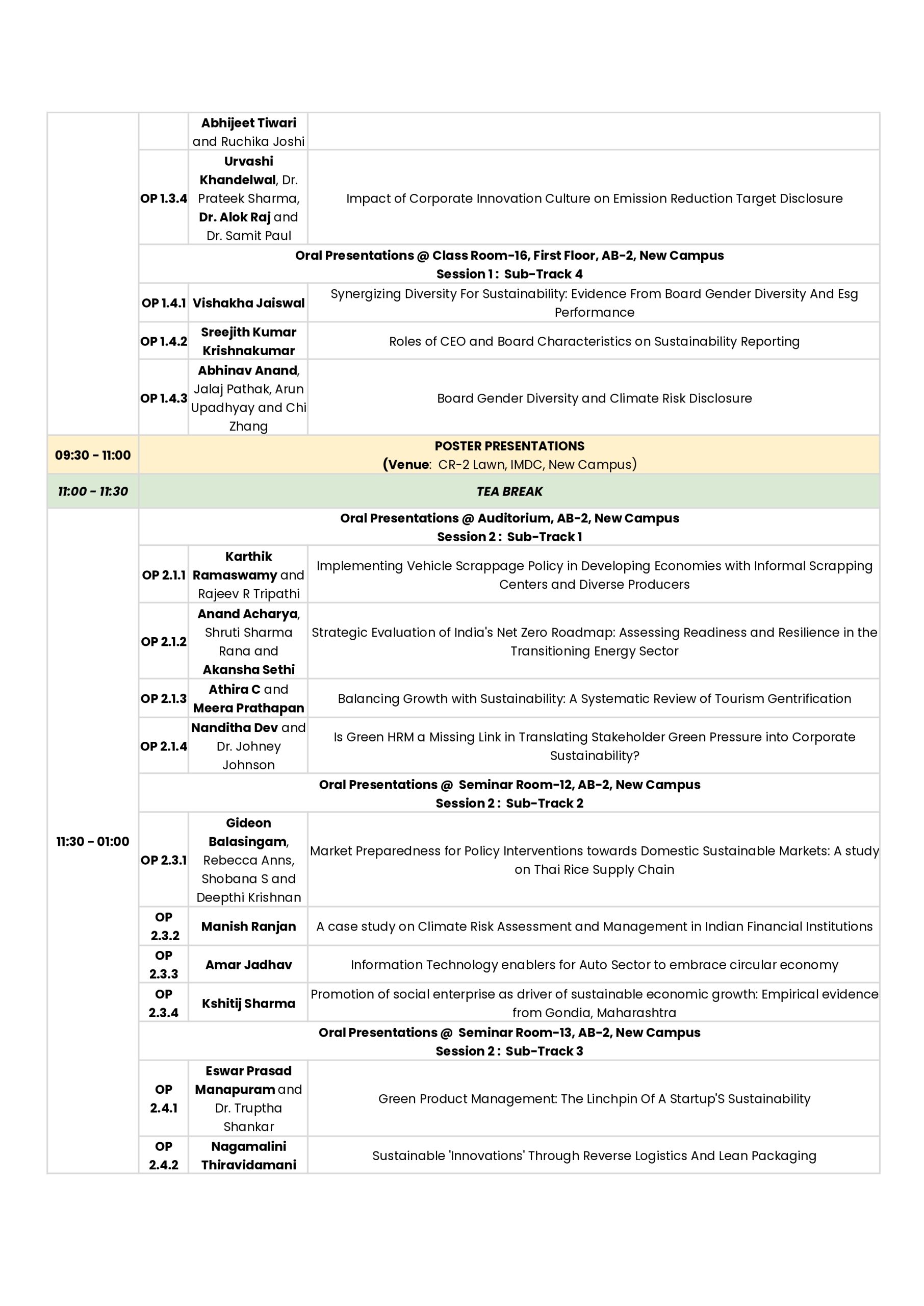
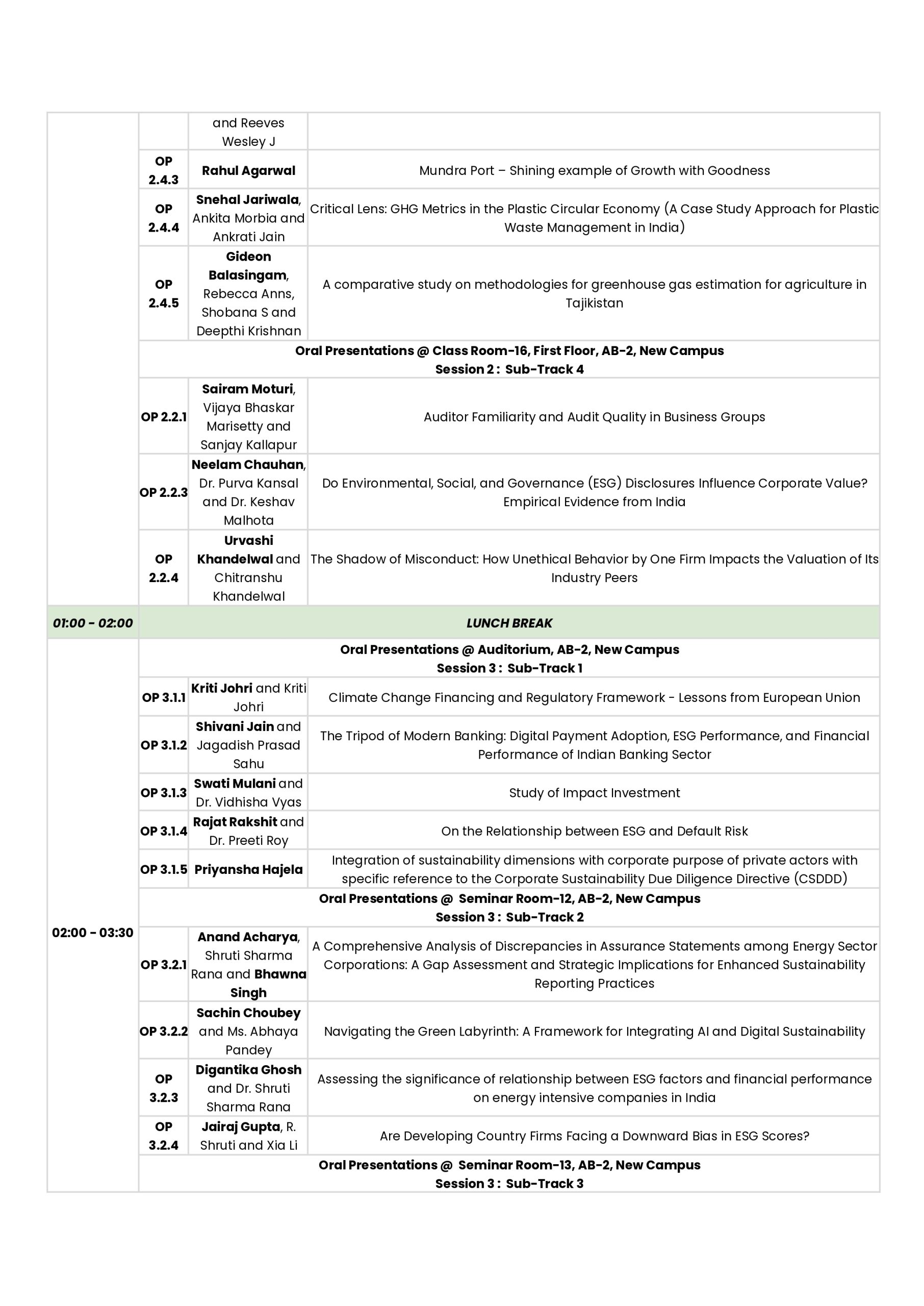
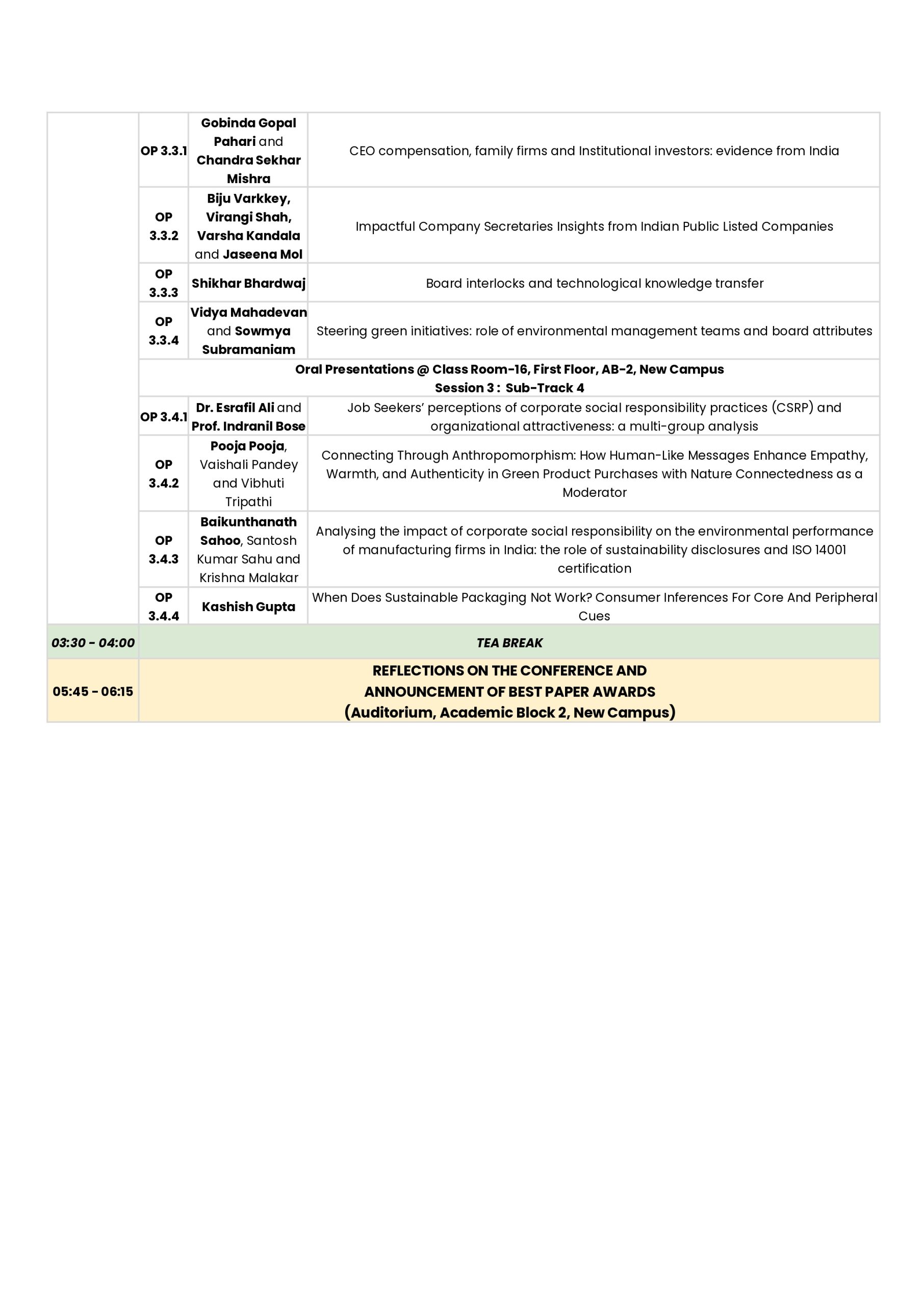
Conference Videos
Conference Report
Click here to check the IRCC Report 2024.

